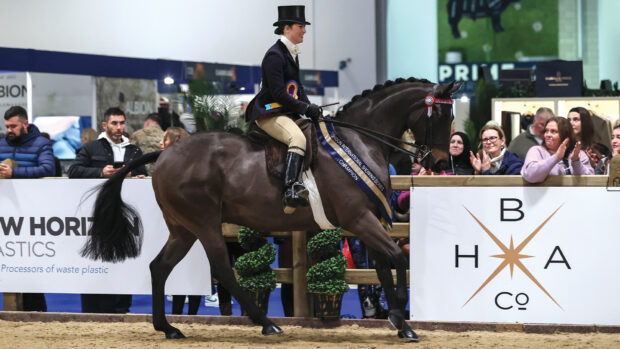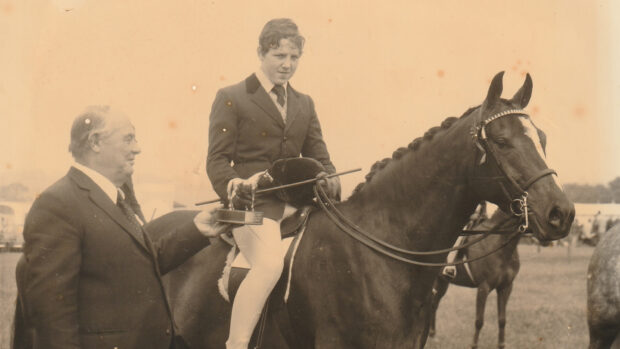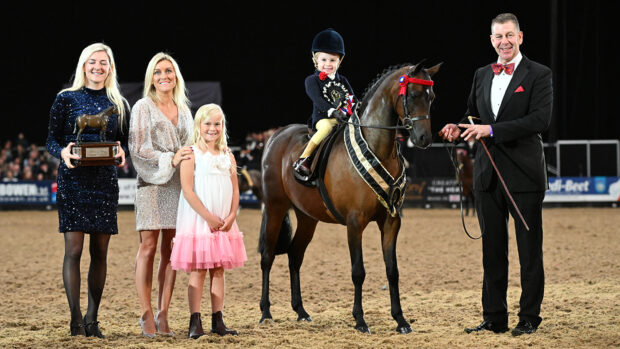International competitor and trainer, Pammy Hutton, on what is fair to ask of judges and equestrian’s social licence
As costs rise and entries fall, show venues are fighting for every entry to stay viable. But at what cost to the quality of dressage judging? Taking late entries has become the norm, even if it means squeezing another rider into the gap between classes that should enable judges to draw breath and prepare for the next test.
Centres frequently run tests from prelim to advanced medium with one judge across all classes. At a recent show, a judge assessed more than 20 horses over eight different tests; one novice, two elementaries, two mediums, two advanced mediums and one advanced. A three-and-a-half-hour session with no breaks is enough to leave any judge’s brain well fried… and wondering if the next one down the centre line is going to be turning left or right and what degree of collection to expect.
With the cost of an entry now over £20 and the intensity of training required of judges to do a highly skilled and professional job, are we not expecting too much from our judges – and at riders’ expense or loss?
I sympathise with the centres. For our riding school, the actual horse costs are the least of our worries. Our electricity bill has doubled to more than £50,000 a year, news I received on holiday and which left me fearing it would be my last. As for the expense of horse ownership, will sharing become a thing? It works in racing via syndicates and could be a way for people to continue experiencing the joy of having a horse.
Time to fight back
Then there is the growing worry about retaining equestrianism’s social licence. There’s been some creditable and serious scientific work done on this lately. And it’s rightly made us all question if one day we won’t be able to ride at all – except in our unregulated back gardens when no one is looking.
Everyone reading this knows what horses do for our souls, how much good horses do through organisations such as the Riding for the Disabled Association, how riding is a healthy activity that gets kids away from screens and gives older people social interaction. We’re all aware that if we stopped riding them, most horses would have limited time on this planet. Yet one only has to look at certain pages on social media to realise how much the stop-competing and no-riding advocates have grown in numbers.
We need to fight back. And I’d suggest a three-pronged attack. One, horse sport needs to clean up its act. Two, we’ve done enough preaching to the converted; it’s time to take the message to the wider world. Instead of moaning between ourselves about rollkur, spurs and double bridles, we should work harder at promoting riding. Three, we must support and preserve places for people thus inspired to be able to learn to ride.
Those of us who ride every day take it for granted, it can even be a chore. Clients who ride with us once a week tell us it’s the highlight of their week and enhances their lives. When did you last ask someone if they’d like to learn to ride? We’re complacent about horses’ size, power and magnificence. Next time you’re out on a hack, stop and let that inquisitive child stroke your horse, look into his liquid eyes and feel his velvety coat. You never know what it might inspire.
Earlier this month, during a coffee morning for Macmillan Cancer Support run by Whitegate Farm Training and Livery Centre near Chester, eight riders performed a quadrille to music for visitors to watch over cakes, hot drinks and chat. Lots of non-horsey people came along and the event made the local TV news. Even if just one person went home viewing horse riding in a new light, it was a job well done. Small projects that actually happen can sometimes achieve more than grandiose schemes forever in the planning.
● Do you have a good idea to encourage the public’s enthusiasm for horses and horse sport? Write to hhletters@futurenet.com
- This exclusive column will also be available to read in Horse & Hound, publication date Thursday 27 October
You may also be interested in…

The secret weapon who helps dressage World Championships silver medallist Richard Davison…

Laura Fry: the late Olympic rider whose daughter became world champion

A close relative of Valegro, a stunning grey and more names for your notebook: meet the rising young stars in Lottie Fry’s string

Subscribe to Horse & Hound magazine today – and enjoy unlimited website access all year round
Horse & Hound magazine, out every Thursday, is packed with all the latest news and reports, as well as interviews, specials, nostalgia, vet and training advice. Find how you can enjoy the magazine delivered to your door every week, plus options to upgrade your subscription to access our online service that brings you breaking news and reports as well as other benefits.




